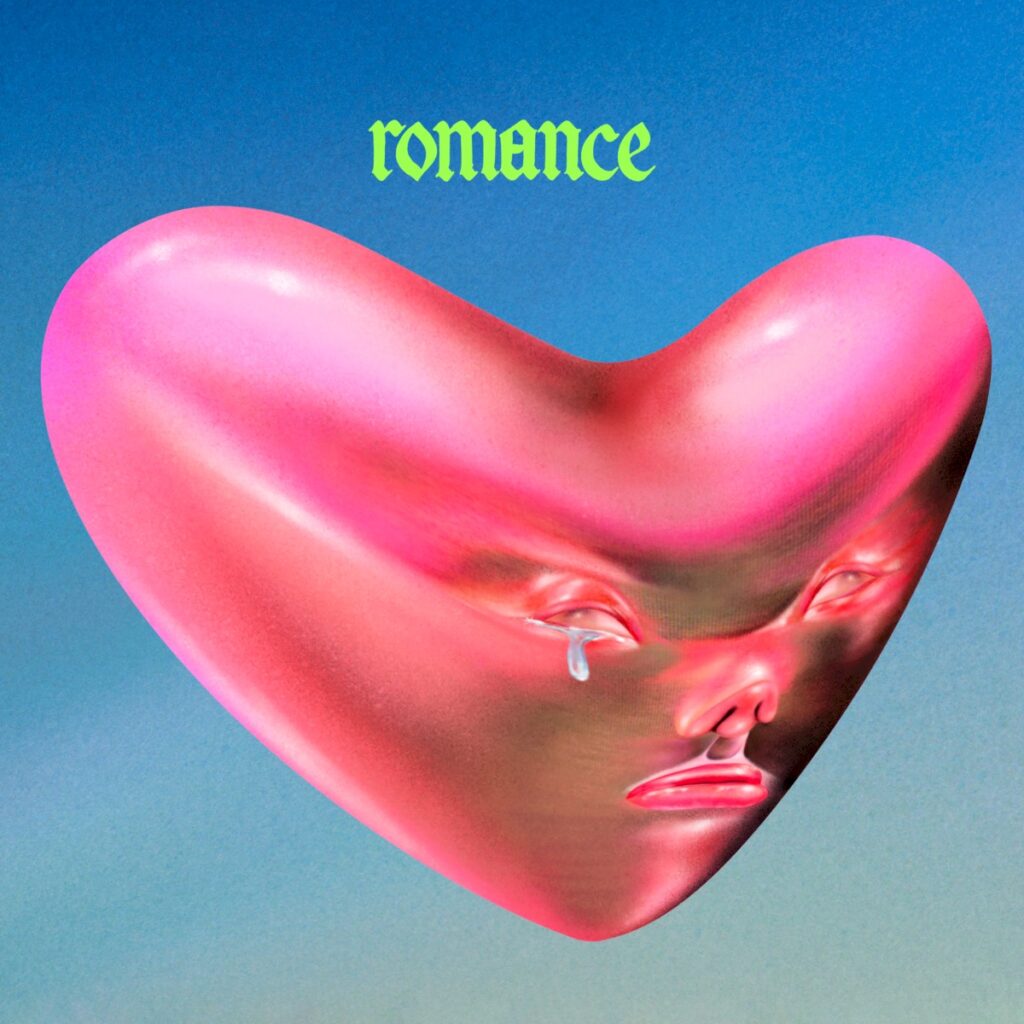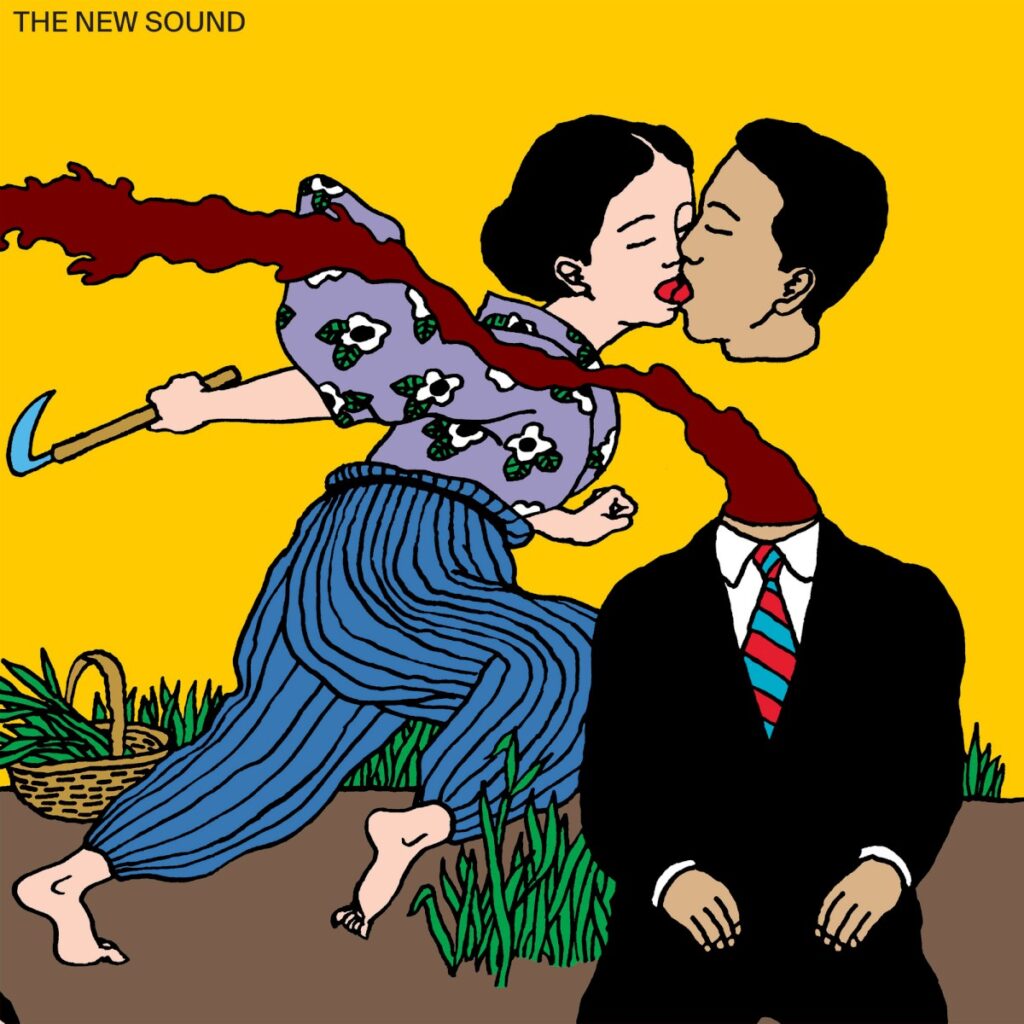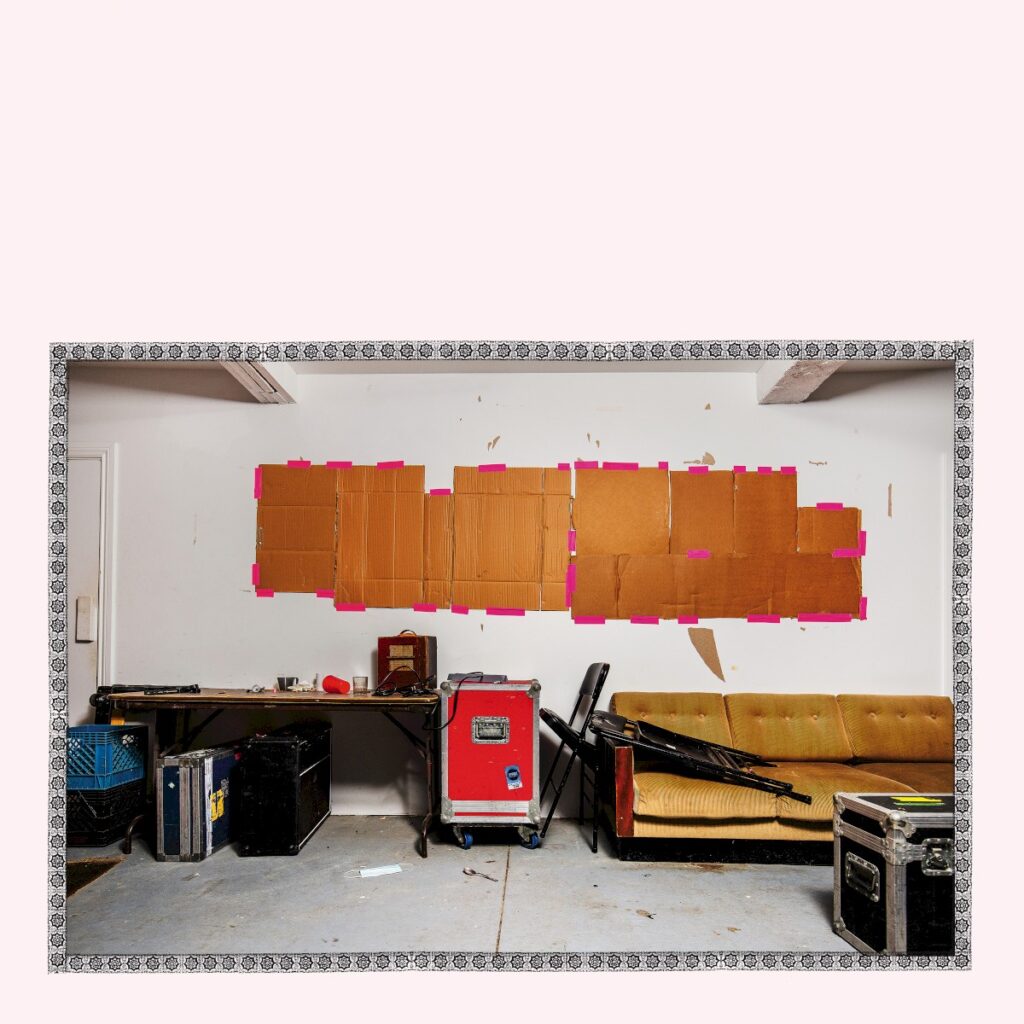Previously,
The Best 25 Albums of 2024: My Picks #25-21
The Best 25 Albums of 2024: My Picks #20-16
15.
Fontaines D.C., ‘Romance’

Fontaines D.C., the Dublin-based post-punk band that stormed onto the scene in 2019 with their electrifying debut album, has consistently captivated audiences with their raw energy and poignant explorations of life in and beyond Ireland. Their fourth studio album, Romance, delivers on its titular promise by drawing listeners into a world of romantic exploration. However, true to Fontaines D.C.’s style, this is not a mere collection of love songs; instead, the album navigates the complexity of romance—intertwining personal relationships with broader societal observations and cultural dissection. The band paints a picture of love that is as frustrating and chaotic as it is beautiful and transformative; a romantic state where tenderness and turmoil coexist. The standout track Eros and Agape contrasts the Greek concepts of passionate, physical love and selfless, unconditional love. The lyrics traverse these ideals, questioning the implications of each and their coexistence in modern relationships. The song City Lights offers a poetic narrative depicting the trials and transient joys of urban relationships. Chatten’s lyricism here is particularly vivid, drawing on urban imagery to reflect the fleeting and sometimes superficial nature of metropolitan romances. Lines that juxtapose the grim austerity of city life against the ephemeral glow of night lights heighten the emotional impact. Romance builds on the robust soundscape Fontaines D.C. established in their previous work while venturing into new sonic territories. This album sees them embracing a richer palette, incorporating orchestral elements and varied instrumentation that add layers and depth to their signature post-punk sound. The layered guitars, prominent basslines, and the subtle interplay between vocals and instrumentation are both immersive and exhilarating.
14.
Adrianne Lenker, ‘Bright Future’

You might know her as the vocalist of Big Thief. Adrianne Lenker’s sixth solo studio album, Bright Future, is deeply influenced by notions of time and reminiscence. In this album, Lenker delves into childhood memories, familial bonds, and the relentless flow of time, revisiting past experiences to make sense of present emotions. From the very start, in the track Real House, Lenker reminisces about her mother and lost childhood innocence, interwoven with intricate reflections on current vulnerabilities, singing poignant lines like, “I’m 31 and I don’t feel strong/Your love is all I want.” Bright Future carries a meditative, almost philosophical air, contemplating themes such as the unpredictability of love and the passage of time. This is particularly witnessed in tracks like Sadness As A Gift, which aptly captures the weight of relationship endings juxtaposed with hope: “We could see the sadness as a gift and still/ Feel too heavy to hold.” In Evol, a clever play on words transforms the word ‘love’ backward into ‘evil,’ a move that invites reflection on the complex nature of romantic relationships. The album also carries Lenker’s environmental concerns and existential musings. The album also carries Lenker’s environmental concerns and existential musings. In Donut Seam, she sings, “This whole world is dying / Don’t it seem like a good time for swimming / Before all the water disappears?” Bright Future is anchored in indie folk and embraces a minimalist yet complex arrangement style echoing Lenker’s previous work while forging new paths. Lenker’s compositions in this album frequently employ a free-form, intuitive style, reminiscent of her past solo projects such as Abysskiss and Songs. Producer Philip Weinrobe and Lenker opted for an entirely analog production process, deliberately avoiding modern digital interfaces to capture the raw, unfiltered emotional essence of the performances. This process allows natural imperfections, like the hiss of analog tape and ambient background noises, to become integral to the album’s sonic landscape, reinforcing its themes of memory and nature.
13.
Geordie Greep, ‘The New Sound’

Geordie Greep, the former enigmatic frontman of Black Midi, makes a striking entrance into the solo scene with his debut album, The New Sound. Just like the quirky album cover, The New Sound is essentially a concept album that delves into the intricacies of modern masculinity. It is a reflection on desperation and the often misguided facade of confidence that individuals project onto the world. Greep crafts characters who, in an attempt to portray bravado, reveal vulnerability and insecurity. The album further interrogates the absurdities of social interactions, especially focusing on the romantic follies of its characters. Greep’s songwriting presents a mixture of poetic imagery and sharp vulgarity, reminiscent of his work with Black Midi but with greater personal introspection. The album’s thematic exploration is particularly evident in Holy, Holy, where the protagonist’s attempts at charm reveal a deeper sense of hollowness as the narrative poignantly shows a desperate effort for validation. The single Motorbike, featuring Seth Evans on vocals, provides a glimpse into the existential unraveling of its protagonist, while Through a War satirically elevates a figure from mundane life, revealing the precariousness of his persona. Musically, The New Sound is as dynamic as its themes. The album incorporates a wide array of genres, including salsa, bolero, jazz, and progressive rock. Tracks like Terra, deeply embedded in Latin influences, stand in contrast to others like Holy, Holy, a track echoing the sophisticated fusion of Steely Dan with a unique twist that is distinctly “Greep”. The album is noted for its adventurous instrumental arrangements. Over 30 musicians contribute to the album’s 11 tracks, layering the soundscape with a rich tapestry of sounds. Standout moments include the intense electric guitar fervor of As If Waltz and the haunting beauty of The Magician.
12.
Jessica Pratt, ‘Here In The Pitch’

Jessica Pratt’s fourth studio album, Here in the Pitch, is deeply rooted in the “hippie era” of Los Angeles, drawing inspiration from the darker side of the Californian dream. Pratt’s fascination with figures emblematic of this era’s seedy history is evident throughout the album. The title itself, Here in the Pitch, suggests a duality, referring both to absolute darkness and to bitumen, the oily black substance that bubbles to the surface in places like LA’s La Brea Tar Pits. The album explores themes of ambition, enemies, dread, and desolation, often cloaked in Pratt’s peculiar vocal delivery. The lyrics are cryptic and elliptical, offering a sense of mystery and introspection. For instance, the opening track Life Is begins with the line, “Life is, it’s never what you think it’s for,” setting the tone for the album’s exploration of life’s uncertainties and contradictions. Pratt’s lyrics in Here in the Pitch are characterized by their inscrutability and poetic nature. The album’s lyrical content often juxtaposes light and dark, sweetness and melancholy. Lines such as “I want to be a vestige of our senses free” in World on a String and “Some people chip away time more than they understand an open hand” in By Hook or by Crook are typical of her enigmatic style. These lyrics, delivered in Pratt’s low register, offer a sense of formality and solace, even as they remain cryptic. Musically, Here in the Pitch is a seamless melding of Pratt’s lo-fi beginnings and her growing comfort with studio production. The album features a range of instruments, including flute, saxophone, glockenspiel, and timpani, which add depth and complexity to the songs. This expanded instrumentation gives the album a prismatic glow, making it one of Pratt’s most fascinating and repeatable sets to date. The album’s composition is marked by its eerie tone, with moments of playful percussion and bossa nova stylings lightening the overall mood. Pratt’s increasingly recognizable tender strums and strange vocalizations are ever-present, creating a sound that is both dense and distant.
11.
Godspeed You! Black Emperor, “NO TITLE AS OF 13 FEBRUARY 2024 28,340 DEAD”

Godspeed You! Black Emperor’s latest album, NO TITLE AS OF 13 FEBRUARY 2024 28,340 DEAD, emerges as a profound political statement interwoven with the band’s signature post-rock arrangements. The album’s title, NO TITLE AS OF 13 FEBRUARY 2024 28,340 DEAD, directly references a reported death toll of Palestinians in the escalating conflict between Israel and Palestine, specifically focusing on Gaza. This stark acknowledgment of human tragedy sets the thematic tone of the record, which is further accentuated by the band’s artistic statement: “NO TITLE= what gestures make sense while tiny bodies fall? what context? what broken melody? and then a tally and a date to mark a point on the line, the negative process, the growing pile”. From themes of societal degradation in Broken Spires at Dead Kapital to glimpses of fragile hope in the closing track, Grey Rubble – Green Shoots, the record juxtaposes pessimism with moments of enduring beauty.
Godspeed You! Black Emperor’s signature style of creating vast, evocative soundscapes is ever-present in this six-track album. The album predominantly relies on instrumental compositions, with occasional spoken word interludes that add depth and texture. Each track contributes to a greater narrative, one that mirrors the chaos and destruction depicted in the themes. The instrumentation is complex, incorporating a wide array of sounds and influences that span from droning guitars and bass-heavy rhythms to sweeping orchestral arrangements. The track Broken Spires at Dead Kapital features pounding drums and double bass notes. As the piece progresses, it accelerates into chaotic, apocalyptic soundscapes that feel like the crumbling of societies under the weight of capitalism and conflict. Pale Spectator Takes Photographs embraces dissonance, with rattling percussion and discordant echoes heightening a sense of catastrophe. Guitars and strings duel in tremolo-style chaos, mirroring the disorientation and anguish inherent in its themes. Grey Rubble – Green Shoots, the album’s closing track, alternates between overt noise rock and fragile moments of Sigur Rós-like melancholia, painting a stark contrast between devastation and renewal. Godspeed You! Black Emperor’s works often defy mainstream music conventions. The Canadian collective has once again centered their work around poignant socio-political themes, creating a soundtrack that echoes the global disquiet surrounding ongoing conflicts, poignant, reflective, and alarming.
Continue Reading:
The Best 25 Albums of 2024: My Picks #10-6
The Best 25 Albums of 2024: My Picks #5-1